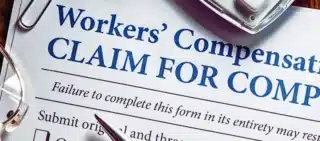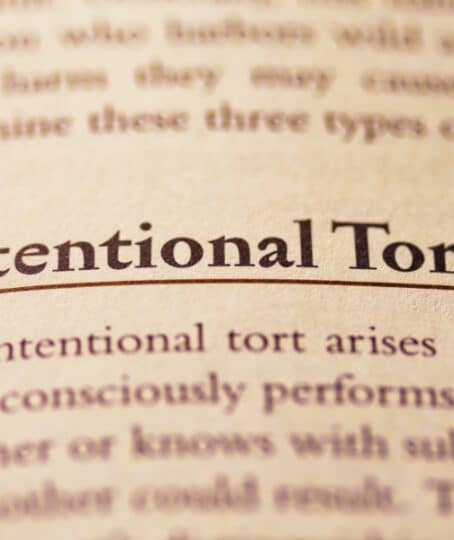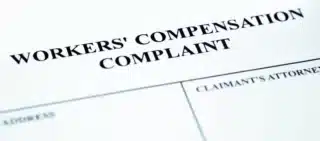
At Strong Law Offices, we have a team of workers' compensation lawyers who understand the financial setbacks and physical limitations...


If you have suffered a workplace injury in Bloomington, you are generally barred from bringing a lawsuit against your employer for compensation. This is because employers provide workers’ compensation insurance for their employees’ benefit, in exchange for legal protection against personal injury claims being brought against them. However, if you have suffered a workplace injury, there are exceptions to the exclusive remedy rule. Exceptions that allow you to sue an employer in certain circumstances vary by state. Some of the most common include an employer acting in a dual capacity, causing intentional harm, failure to maintain workers’ comp insurance, and gross negligence by the employer.

Illinois law requires workers’ compensation insurance for all employees. If you are injured in a work-related accident in Bloomington, there may be a workers’ compensation investigation, and workers’ compensation will compensate you for costs relating to your injury. Compensation is for medical expenses and rehabilitation costs, permanent incapacity benefits to compensate you for the loss of earning potential, temporary incapacity benefits to compensate for the loss of income while you recover, or loss of support for the death of a breadwinner.
An employer is responsible for providing workers’ compensation. It is a form of compromise whereby the employee is covered for injuries sustained in the workplace in exchange for the ability to hold his or her employer liable. Because employees are barred from holding employers liable for the costs of their injuries, workers’ compensation is the exclusive remedy available to them. This is the exclusive remedy principle.
An example would be when two construction workers are performing a job for their employer. The first worker’s duty is to secure a ladder, which the second worker must climb. The first worker fails to secure the ladder properly, causing it to collapse and resulting in injury to the second worker. The injured worker is not permitted to sue the employer for failing to provide adequate safety equipment, or for negligence in failing to train the first worker. The exclusive remedy available would be to make a claim under workers’ compensation.
There are certain exceptions to the exclusive remedy rule. If any of the exceptions apply, then an employee is permitted to hold his or her employer liable, rather than claiming workers’ compensation. Each state has its own workers’ compensation laws, so the exceptions vary from state to state. A Bloomington workers’ compensation lawyer will assist in determining if your case is an exception to the exclusive remedy rule in Illinois.
In Illinois, courts have provided 4 exceptions for which the exclusive remedy will not apply. These are:
While the above-listed exceptions were created from Illinois judicial precedent, there are other types of exceptions to the exclusive remedy rule, that generally apply in most jurisdictions.
The dual capacity doctrine has been judicially recognized in Illinois. While employees are not permitted to sue an employer under the exclusive remedy rule, he or she is permitted to institute lawsuits against negligent third parties who are not protected by workers’ comp. This principle provides the basis for the dual capacity doctrine. If an employer assumes a non-employer capacity and then negligently injures an employee while acting in the non-employer capacity, he or she assumes the role of a third party rather than an employer. He or she can then be sued as a third party.
This doctrine was first implemented in a California supreme court case and has subsequently been recognized in other states as well. In this case, the plaintiff was a nurse who was injured in the course of her employment and received workers’ compensation benefits. The employer was a chiropractor and administered negligent medical treatment which aggravated the injury. The plaintiff instituted a case against her employer, for the aggravation of her injury.
The defendant asserted that he could not be held liable, because workers’ compensation provided the exclusive remedy. The court decided that he had formed two separate relationships with the nurse. One was as an employer, and the other as a chiropractor. While he could not be liable as an employer, the court decided that in his capacity and actions as a chiropractor, he had no basis for claiming immunity using the exclusive remedy rule. He was therefore liable in his capacity as a chiropractor.
Every jurisdiction in the United States requires employers to provide insurance to their employees. In Illinois, if your employer knowingly fails to provide workers’ compensation insurance for you, then he or she loses the protection of the exclusive remedy rule, and you are permitted to sue him or her for compensation in civil court.
If you have been injured while at work, which was intentionally caused by your employer, then you can bring a claim against your employer. This principle has been confirmed by the courts in Illinois. The appellate court has stated that workers’ compensation must avoid shielding the wrongdoer from liability. The court considered that the legislature in Illinois would not permit a person who performs an intentional wrongful act to shift his or her liability to a fund paid for by premiums collected from the innocent party.
Intentional torts can be:
The exclusive remedy rule in workers’ compensation generally doesn’t protect employers from gross negligence. While gross negligence can be hard to prove, and the definition may vary slightly, the criteria are mostly the same. It can be described as the voluntary disregard of the need to use reasonable care, where the disregard is likely to lead to foreseeable grave injury to a person. If you can prove that there was an extreme risk caused by an employer’s act or omission, that the employer had awareness of the risk created by this, and proceeded anyway, with conscious indifference to the safety of the employee, then there is gross negligence.
The Occupational Safety and Health Administration (OSHA) can play a role in workers’ compensation claims. The OSHA is responsible for ensuring that employees have safe working environments by establishing regulations that employers must follow. The top 5 OSHA safety violations involve warning and training employees on hazardous materials, having safety guards on dangerous machines, and a lockout of machinery that could unexpectedly harm to an employee. They also include keeping walking surfaces clean, dry, in good repair, and free from hazards, and having emergency action plans.
While an OSHA safety violation does not provide an exception to the exclusive remedy rule, it can nevertheless assist with providing proof of an employer’s gross negligence.

At Strong Law Offices, we have a team of workers' compensation lawyers who understand the financial setbacks and physical limitations...

Common Equipment Involved in Run-Over Accidents Illinois job sites, from construction zones to industrial plants, depend on machinery to stay...

Why Do Employers Refuse to File Workers' Comp Claims? While most employers understand their legal obligation to report workplace injuries...